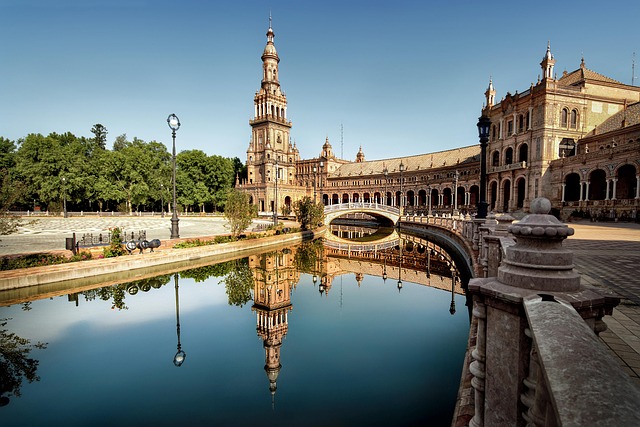Karachi, Pakistan's vibrant historic city, has transformed its land registry system from traditional manual records to modern digital approaches. This evolution, driven by urbanization, enhances efficiency and transparency in property transactions. The Land Registry Department in Gadap Town plays a crucial role, managing land maps, conducting surveys, and providing essential data for urban planning. This digital transformation aims to streamline processes, improve accuracy, and facilitate secure real estate dealings, addressing the challenges posed by rapid suburban expansion and unauthorized construction.
“Explore the intricate world of land registry within Karachi’s vibrant expanse, particularly focusing on Gadap Town. This article delves into the historical evolution of land record-keeping in the metropolis, highlighting the pivotal role played by the Land Registry Department. We examine the unique geographic and demographic features of Gadap Town, offering insights into the processes of property registration. Furthermore, it uncovers challenges faced and envisions future prospects for efficient land administration in Karachi’s rapidly growing suburbs.”
- Historical Overview of Land Registry in Karachi
- The Role and Functions of the Land Registry Department
- Gadap Town: A Detailed Look at Its Geographic and Demographic Aspects
- Processes Involved in Registering Property in Gadap Town
- Challenges and Future Prospects of Land Registry in Karachi's Growing Suburbs
Historical Overview of Land Registry in Karachi

Karachi, as one of Pakistan’s most vibrant and historic cities, has witnessed a significant evolution in its land registry system over the years. The journey began with traditional manual record-keeping, where land ownership was documented through handwritten registers and local community records. With Karachi’s rapid urbanization and growing population, the need for a more organized and efficient land management system became evident.
In the late 20th century, the city witnessed the introduction of digital land registry systems, marking a significant shift. The government of Pakistan, in collaboration with various technological initiatives, aimed to modernize the process. This digital transformation facilitated better record-keeping, increased transparency, and faster property transactions. Today, Karachi’s land registry system plays a crucial role in shaping the real estate landscape of the metropolis, ensuring a structured and secure environment for both buyers and sellers.
The Role and Functions of the Land Registry Department

The Land Registry Department in Gadap Town, Karachi, plays a pivotal role in managing and maintaining the city’s vast real estate landscape. This department is responsible for recording and documenting all property-related transactions, ensuring transparency and ownership security across the metropolitan area. By meticulously cataloging land and property details, they enable smooth economic activities, facilitate investments, and help resolve any disputes that may arise regarding land ownership.
In addition to registration services, this department also oversees the preparation and updating of land maps, conducting surveys, and providing vital data for urban planning. Their work ensures that Karachi’s growth and development are well-managed, with each new construction or modification accurately recorded. This meticulous attention to detail not only safeguards citizens’ interests but also contributes to the overall efficiency of real estate transactions in one of Pakistan’s most vibrant cities.
Gadap Town: A Detailed Look at Its Geographic and Demographic Aspects

Gadap Town, a vibrant area within the bustling metropolis of Karachi, Pakistan, boasts a unique blend of geographic and demographic characteristics. Situated in the southern part of the city, it’s bounded by the Arabian Sea to the east, offering a breathtaking coastal view. The area is known for its mixed landscape, featuring lush green parks and playgrounds, alongside dense residential neighborhoods and industrial zones.
Demographically, Gadap Town showcases the diverse cultural fabric of Karachi. It’s home to a cosmopolitan population, with people from various ethnic backgrounds, religions, and socio-economic strata coexisting harmoniously. This diversity is reflected in the area’s vibrant markets, where a kaleidoscope of languages, cuisines, and traditions intertwine, contributing to the rich tapestry of Gadap Town.
Processes Involved in Registering Property in Gadap Town

In Gadap Town, registering a property involves several meticulous steps that are crucial for both buyers and sellers. The process begins with a thorough search of the land registry records to ensure the property’s ownership status is clear. This initial phase is vital in Karachi, where real estate transactions are robust, to avoid any legal complications or disputes later. Once the title is verified, the applicant needs to gather essential documents, including identity proofs, property-related papers, and a no-objection certificate from the relevant authorities.
The next step involves submitting these documents to the local land registry office. Here, an application for registration is filled out, detailing the property’s boundaries, area, and other pertinent information. After careful scrutiny of the submitted paperwork, the land registry officials process the application, which may include further verification or requests for additional documentation. This meticulous navigation through Gadap Town’s property registration processes ensures transparency and safeguards the rights of all parties involved in the transaction, making it a crucial step in the real estate market of Karachi.
Challenges and Future Prospects of Land Registry in Karachi's Growing Suburbs

Karachi, as one of Pakistan’s most populous cities, experiences rapid suburban growth, posing unique challenges for its land registry system. The expanding urban landscape makes it increasingly difficult to maintain accurate and up-to-date records, leading to several hurdles. One major issue is the informal settlement of areas, where unauthorized construction and unregulated development often go unrecorded, creating a complex web of ownership claims and legal ambiguities. This situation hinders efficient land management and hampers economic activities, as investors and developers face heightened risks and uncertainties.
Looking ahead, digital transformation offers a promising prospect for Karachi’s land registry. Implementing robust digital systems could streamline the process, enhance data accuracy, and improve accessibility to records. This shift would enable better land governance, facilitate transparent transactions, and ultimately support the city’s continuous growth while ensuring a more secure future for its residents and businesses.
The land registry of Gadap Town, a vibrant part of Karachi, has evolved significantly over time, reflecting the city’s growth. This article has explored the historical context, current roles, and future prospects of the land registry department in this rapidly developing suburb. Understanding the processes involved in property registration is crucial for navigating the real estate landscape in Karachi. As Gadap Town continues to grow, addressing challenges and implementing innovative solutions will be essential to ensure a transparent and efficient land registry system that benefits all residents and fosters sustainable development.



